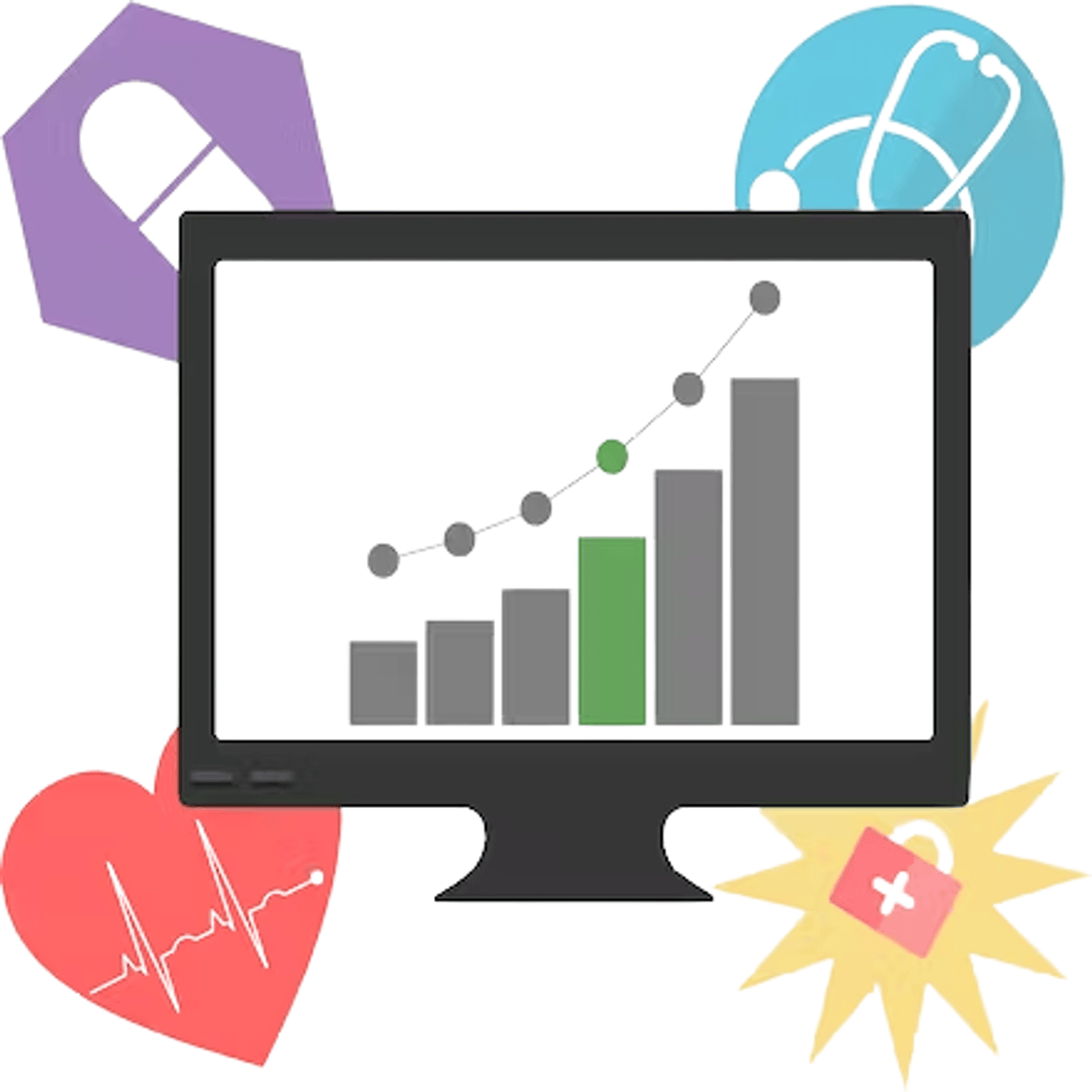
This course teaches you the fundamentals of clinical natural language processing (NLP). In this course you will learn the basic linguistic principals underlying NLP, as well as how to write regular expressions and handle text data in R. You will also learn practical techniques for text processing to be able to extract information from clinical notes. Finally, you will have a chance to put your skills to the test with a real-world practical application where you develop text processing algorithms to identify diabetic complications from clinical notes. You will complete this work using a free, online computational environment for data science hosted by our Industry Partner Google Cloud.
What's inside
Syllabus
Introduction: Clinical Natural Language Processing
This module covers the basics of text mining, text processing, and natural language processing. It also provides a information on the linguistic foundations that underly NLP tools.
Read more
Syllabus
Good to know
Save this course
Reviews summary
Nlp for clinical professionals
Activities
Attend a tutorial on using regular expressions
Show steps
Attend a tutorial on using regular expressions for clinical text processing to improve your proficiency.
Browse courses on
Regular Expressions
Show steps
-
Find a tutorial on using regular expressions for clinical text processing.
-
Follow the steps in the tutorial to learn how to use regular expressions.
-
Practice using regular expressions on sample clinical text.
Join a study group to discuss course material
Show steps
Join a study group to discuss course material, share insights, and collaborate on assignments.
Show steps
-
Find a study group or create one with classmates.
-
Set regular meeting times and stick to them.
-
Share notes, discuss course readings, and work on assignments together.
Develop a text processing algorithm to identify diabetic complications
Show steps
Develop a text processing algorithm to identify diabetic complications which will enhance your problem-solving and analytical abilities.
Browse courses on
Clinical Decision Support
Show steps
-
Gather a dataset of clinical notes containing information on diabetic complications.
-
Explore the dataset and identify patterns and features associated with diabetic complications.
-
Design and implement a text processing algorithm to extract relevant information from the clinical notes.
-
Evaluate the performance of the algorithm using metrics such as accuracy, recall, and precision.
-
Write a report summarizing the algorithm's performance and potential applications in clinical settings.
One other activity
Expand to see all activities and additional details
Show all four activities
Create a comprehensive study guide
Show steps
Compile a comprehensive study guide to improve your retention and overall understanding of the concepts
Show steps
-
Gather notes, assignments, and other relevant materials from the course.
-
Review the materials and identify key concepts.
-
Organize the materials into a logical and structured format.
-
Include summaries, diagrams, and practice questions to reinforce your understanding.
Attend a tutorial on using regular expressions
Show steps
Attend a tutorial on using regular expressions for clinical text processing to improve your proficiency.
Browse courses on
Regular Expressions
Show steps
- Find a tutorial on using regular expressions for clinical text processing.
- Follow the steps in the tutorial to learn how to use regular expressions.
- Practice using regular expressions on sample clinical text.
Join a study group to discuss course material
Show steps
Join a study group to discuss course material, share insights, and collaborate on assignments.
Show steps
- Find a study group or create one with classmates.
- Set regular meeting times and stick to them.
- Share notes, discuss course readings, and work on assignments together.
Develop a text processing algorithm to identify diabetic complications
Show steps
Develop a text processing algorithm to identify diabetic complications which will enhance your problem-solving and analytical abilities.
Browse courses on
Clinical Decision Support
Show steps
- Gather a dataset of clinical notes containing information on diabetic complications.
- Explore the dataset and identify patterns and features associated with diabetic complications.
- Design and implement a text processing algorithm to extract relevant information from the clinical notes.
- Evaluate the performance of the algorithm using metrics such as accuracy, recall, and precision.
- Write a report summarizing the algorithm's performance and potential applications in clinical settings.
Create a comprehensive study guide
Show steps
Compile a comprehensive study guide to improve your retention and overall understanding of the concepts
Show steps
- Gather notes, assignments, and other relevant materials from the course.
- Review the materials and identify key concepts.
- Organize the materials into a logical and structured format.
- Include summaries, diagrams, and practice questions to reinforce your understanding.
Career center
Health Data Analyst
Clinical Research Associate
Medical Writer
Health Informatics Specialist
Data Scientist
Software Engineer
Information Architect
User Experience Designer
Content Strategist
Technical Writer
Technical Communicator
Science Writer
Science Communicator
Science Journalist
Research Scientist
Reading list
Share
Similar courses
OpenCourser helps millions of learners each year. People visit us to learn workspace skills, ace their exams, and nurture their curiosity.
Our extensive catalog contains over 50,000 courses and twice as many books. Browse by search, by topic, or even by career interests. We'll match you to the right resources quickly.
Find this site helpful? Tell a friend about us.
We're supported by our community of learners. When you purchase or subscribe to courses and programs or purchase books, we may earn a commission from our partners.
Your purchases help us maintain our catalog and keep our servers humming without ads.
Thank you for supporting OpenCourser.



